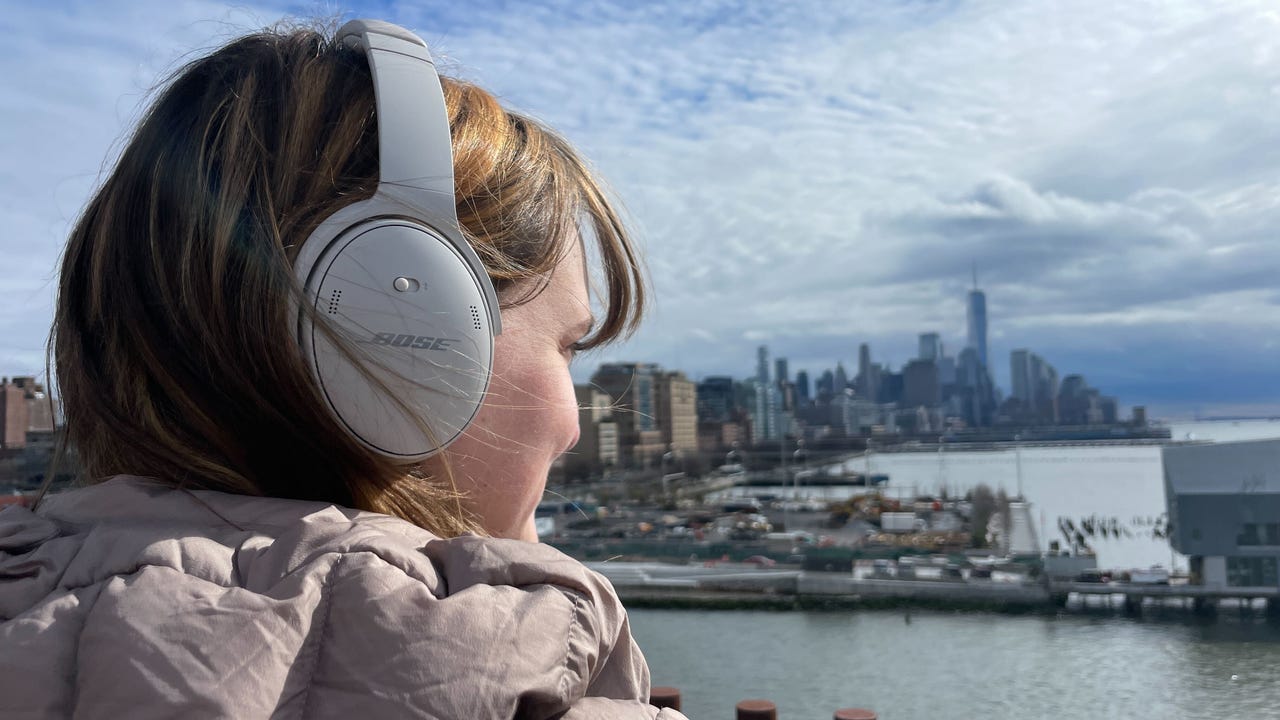'ZDNET Recommends': What exactly does it mean?
ZDNET's recommendations are based on many hours of testing, research, and comparison shopping. We gather data from the best available sources, including vendor and retailer listings as well as other relevant and independent reviews sites. And we pore over customer reviews to find out what matters to real people who already own and use the products and services we’re assessing.
When you click through from our site to a retailer and buy a product or service, we may earn affiliate commissions. This helps support our work, but does not affect what we cover or how, and it does not affect the price you pay. Neither ZDNET nor the author are compensated for these independent reviews. Indeed, we follow strict guidelines that ensure our editorial content is never influenced by advertisers.
ZDNET's editorial team writes on behalf of you, our reader. Our goal is to deliver the most accurate information and the most knowledgeable advice possible in order to help you make smarter buying decisions on tech gear and a wide array of products and services. Our editors thoroughly review and fact-check every article to ensure that our content meets the highest standards. If we have made an error or published misleading information, we will correct or clarify the article. If you see inaccuracies in our content, please report the mistake via this form.
How do noise-canceling headphones work?

A good pair of noise-canceling headphones, like the Bose QuietComfort 45s, can even counteract the chaotic sounds of New York City.
Active Noise Cancellation (ANC) is one of the top features shoppers look for in headsets but what is it exactly?
Also: The best noise-canceling headphones you can buy
As the name suggests, ANC works to actively cancel out the ambient noise that interferes with what you hear from the sound coming from headphones themselves. It can be great for locking in and blocking out.
Noise-canceling earbuds or headphones can help drown out distraction, but have you ever wondered how they actually work? Are you listening to them or are they listening to you? Read on to learn more about the sound technology behind the silence.
Sound waves: Peaks and valleys
Before we talk about headphones, let's start with the science behind hearing: sound waves. Traveling through the air to our ear, sound waves carry everything from the screeching morning subway to the subtle "click-clack" as we type.
Also: Headphones: A beginner's guide to terminology and technology
Like regular waves, sound waves are made up of various peaks and valleys that together make the noise we end up perceiving.
Sound wave peaks and valleys, when matched with a similar pattern, can amplify sound. An example is when you're at a concert and everyone is singing the same song at relatively the same pitch, so it sounds like one voice. This phenomenon is often referred to as constructive interference.
Also: AirPods Pro might be an inexpensive solution to your hearing loss
On the flip side, when two sound wave peaks and valleys oppose each other, instead of amplification there's a net cancellation. This phenomenon is referred to as destructive interference, and the result is silence. That's where noise-canceling headphones come in.
How ANC headphones listen to create silence
Now, let's talk about how ANC headphones use sound waves' structure to give you peace and quiet.
Equipped with tiny microphones on either the inside or outside of the headphones' ear cups, ANC headphones listen to your surroundings as much as you listen to the sound they're playing.
Also: How to connect Bluetooth headphones to Xbox
When the microphones detect noise, they emit an "anti-noise" sound wave that opposes the incoming wave's peaks and valleys, so that you are unable to hear the external noise.
This destructive interference is why ambient noise is often cancelled out when you wear ANC headphones even when you don't play music.
Where wearing ANC headphones works best
If you're thinking that it's seemingly impossible for tiny microphones to pick up and transmit a counterattack on every single disruptive sound wave, you're correct. Sound still slips through.
Review: Sony's WH-1000XM5 headphones are basically perfect
ANC headphones and the overall sound wave cancellation process work best in a consistent environment. Consistent environments include airplanes, subways (minus the conductor speaking), and in a quiet work environment. Plus, some headphones have more effective ANC than others.
FAQs
Do noise-canceling headphones work by stopping sound waves?
Noise-canceling headphones don't stop sound waves, but emit anti-waves that counter the structure of the intruding sound waves. The opposing peak-and-valley structure of the two waves results in silence.
Is noise canceling the same as noise masking?
Noise canceling, noise masking, and noise blocking all sound like they do pretty much the same thing, but there are differences. Noise canceling uses destructive interference with two opposing sound waves to create silence via built-in microphones. Noise blocking relies on the engineering of the headphone structure itself to cup the ear in a way that prevents sound from getting in. Finally, noise masking emits white noise to reduce ambient sound, hoping to trick your brain into canceling the sound altogether.
Review: Do Soundcore's Sleep A10 noise-masking earbuds really work?
Why can I still hear sound with my noise-canceling headphones?
ANC headphones work best to cancel sound when you're in a controlled sound environment like a plane or library. Some headphones are also better quality than others and use a stronger microphone to emit more powerful anti-noise waves.
